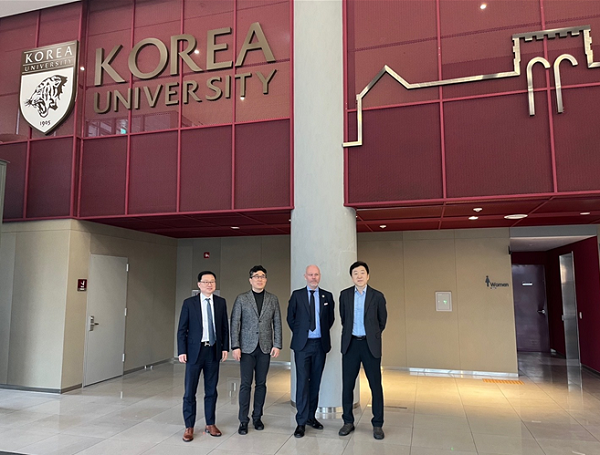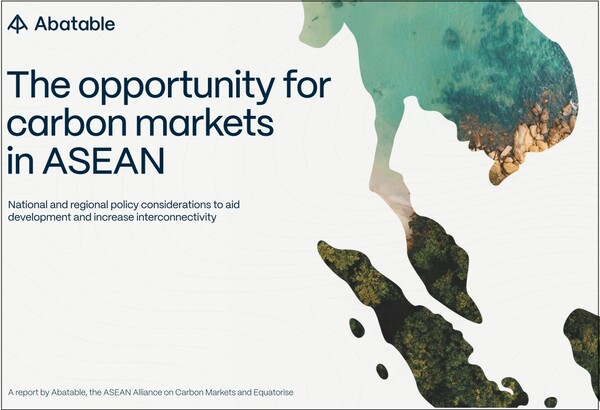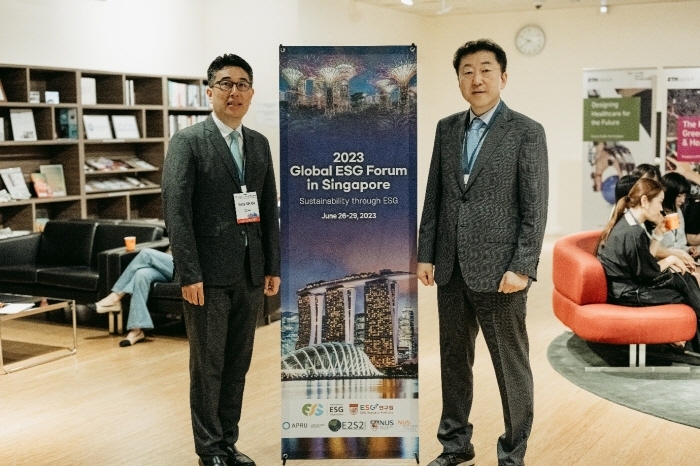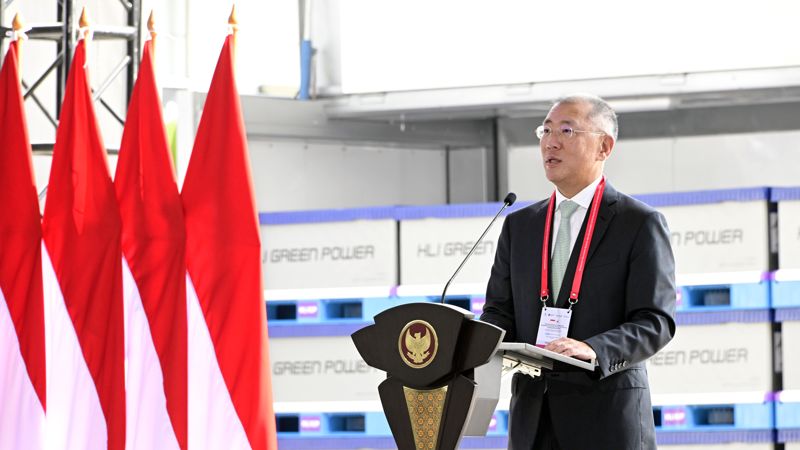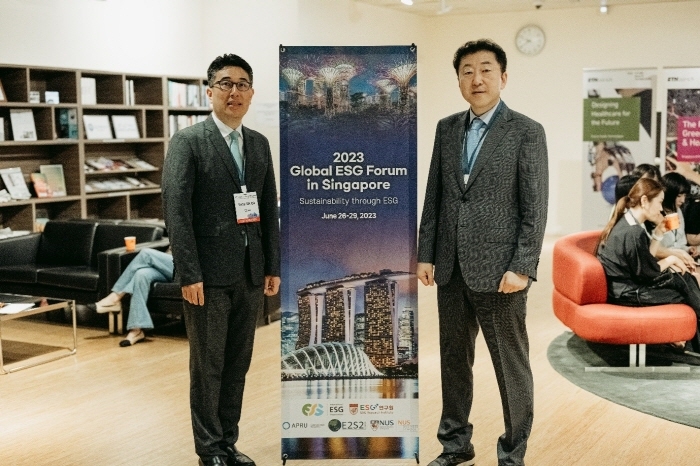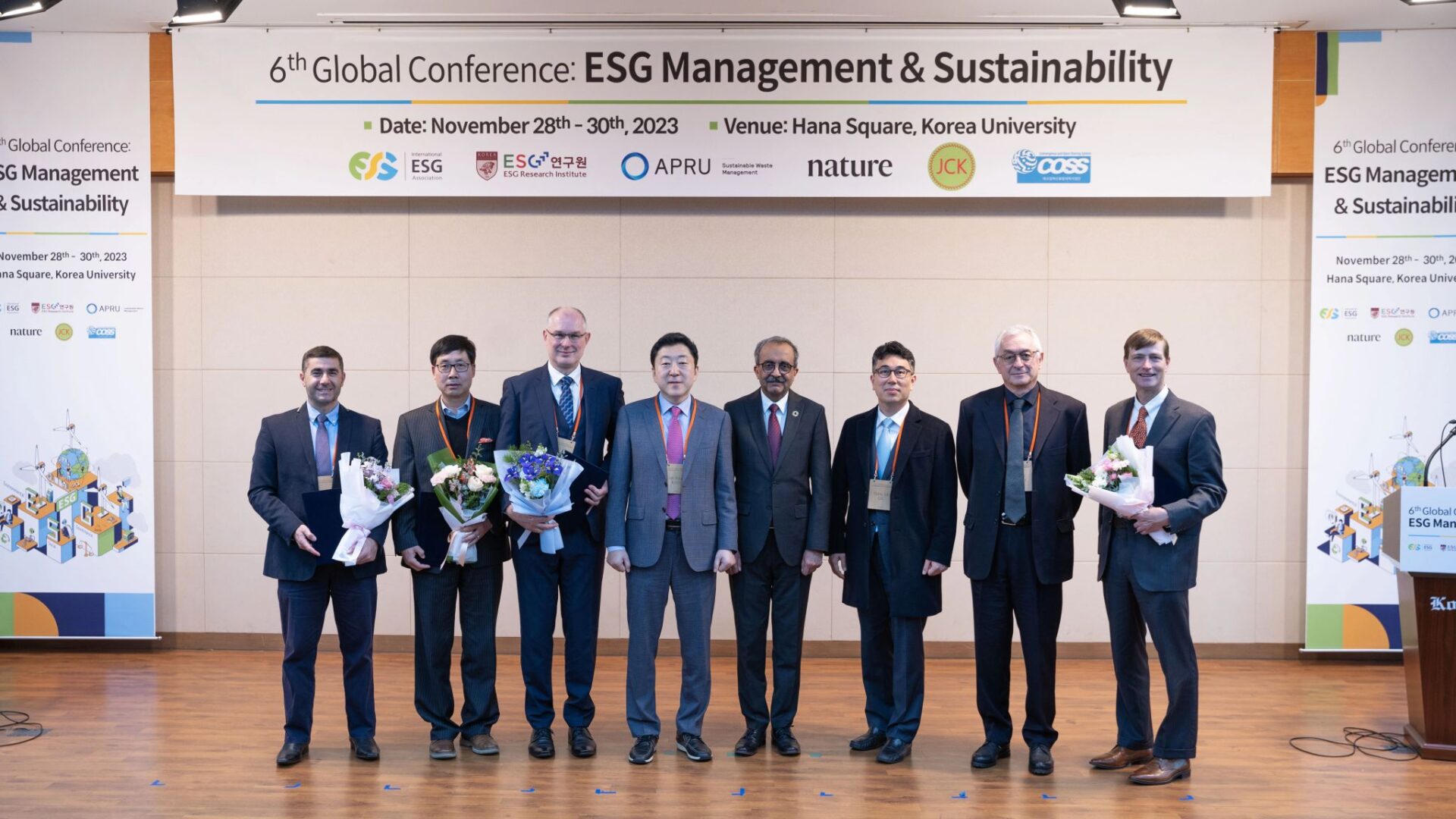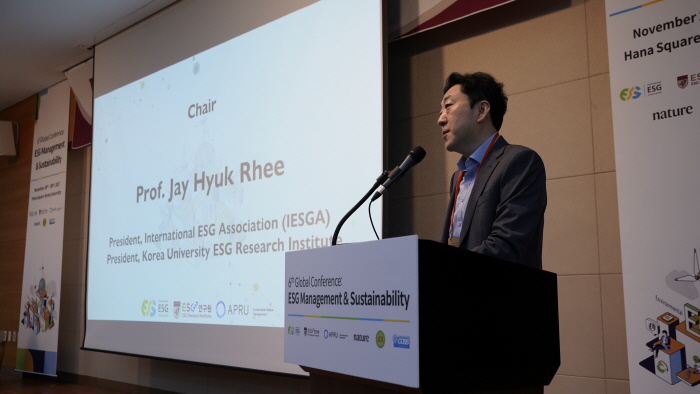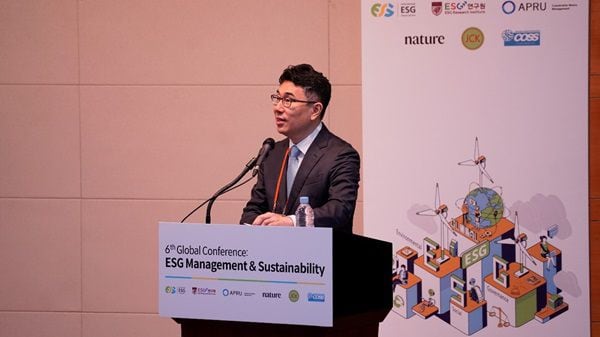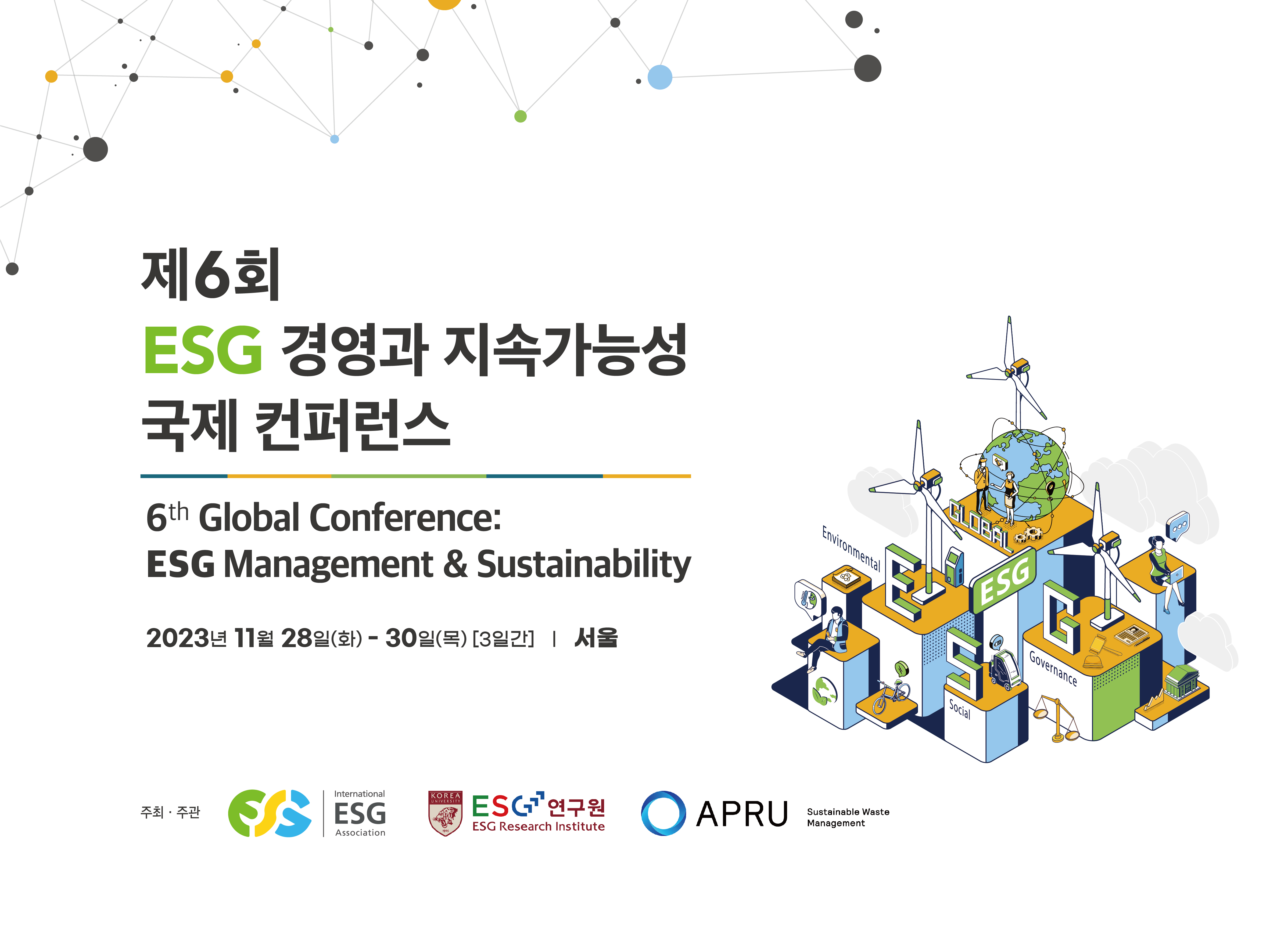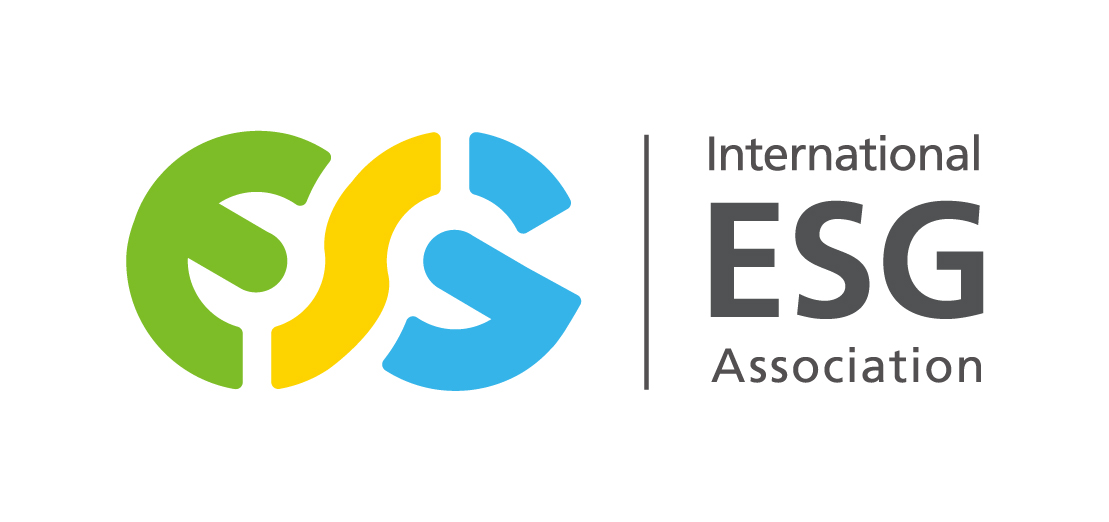

검색
-
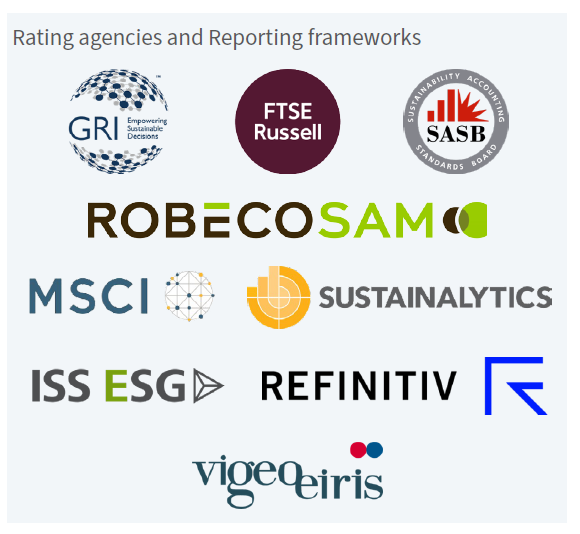 [Harvard.edu] Time to Rethink the S in ESG
[Harvard.edu] Time to Rethink the S in ESGPutting the ‘S’ in context: In early 2019, we wrote a paper highlighting that the focus on Environmental, Social & Governance or ‘ESG’ issues in the capital markets had firmly shifted from the margin to the mainstream. This shift was reflected in the scale of capital being invested in ESG oriented investment funds alongside a generally greater societal awareness (and acceptance) of an urgency to step up efforts to address environmental issues and climate change.As we continued to engage with companies and investors during the course of 2019—and we assessed the corporate reputation challenges being encountered by many companies—it became increasingly clear that factors which fall within the ‘S’ of ESG are as common as (and for some companies more so than) those with...
작성일: 23.06.15 -
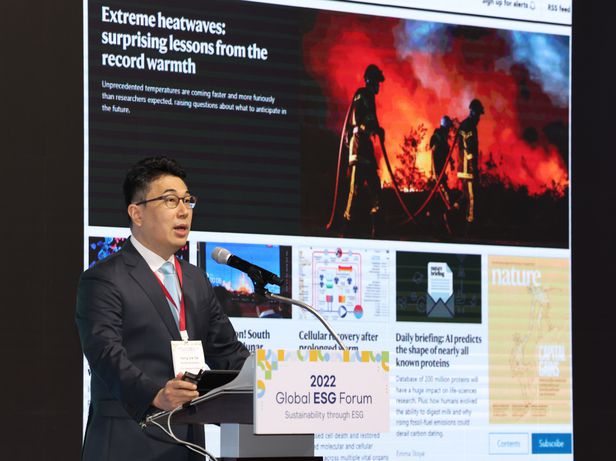 [회장단 소식] 고려대 옥용식 교수, ESG 환경(E) 분야 아시아 최고 과학자 선정 (중앙일보, 2023년 05월 19일)
[회장단 소식] 고려대 옥용식 교수, ESG 환경(E) 분야 아시아 최고 과학자 선정 (중앙일보, 2023년 05월 19일)고려대 환경생태공학부 옥용식 교수(국제ESG협회 회장)가 국제적 명성을 지닌 학술정보서비스 플랫폼 ‘리서치닷컴’에서 발표한 2023년 전세계 최고 환경과학자 평가 순위에서 국내 1위와 함께 아시아 전체 1위에 올랐다고 밝혔다. [고려대학교 환경생태공학부 옥용식 교수] 리서치닷컴은 2014년부터 매년 전 세계 과학자를 대상으로 구글 스칼라(Google Scholar)와 마이크로소프트 아카데믹 그래프(Microsoft Academics Graphics)를 기반으로 과학자들의 연구 업적 순위를 공개하고 있다. 고려대 옥 교수는 클래리베이트를 통해 환경생태 분야에서 대한민국 최초로 세계 상위 1% 연구자 HCR(Highly Cited Resear...
작성일: 23.06.15 -
 [협회소식] 국제ESG협회, ‘글로벌 ESG포럼’ 개최…블랙록, S&P글로벌도 세션 진행 (임팩트온, 2023년 04월 26일)
[협회소식] 국제ESG협회, ‘글로벌 ESG포럼’ 개최…블랙록, S&P글로벌도 세션 진행 (임팩트온, 2023년 04월 26일)국제ESG협회(회장 이재혁, 옥용식 교수)는 오는 6월 24일부터 29일까지 싱가포르에서 글로벌 ESG포럼을 개최한다. 글로벌 ESG포럼은 지난해 8월 서울을 시작으로 매년 국내외를 오가며 ESG 전문가들의 강의를 제공하는 행사다. 지난 2021년에 설립된 국제ESG협회는 글로벌 네트워크를 토대로 다양한 교육 프로그램 및 국제 포럼, 심포지엄을 개최하고 있으며, ESG 관련 전문인력 양성을 위한 아카데미 프로그램도 준비 중에 있다. 출처 : IMPACT ON(임팩트온)(http://www.impacton.net)
작성일: 23.06.15 -
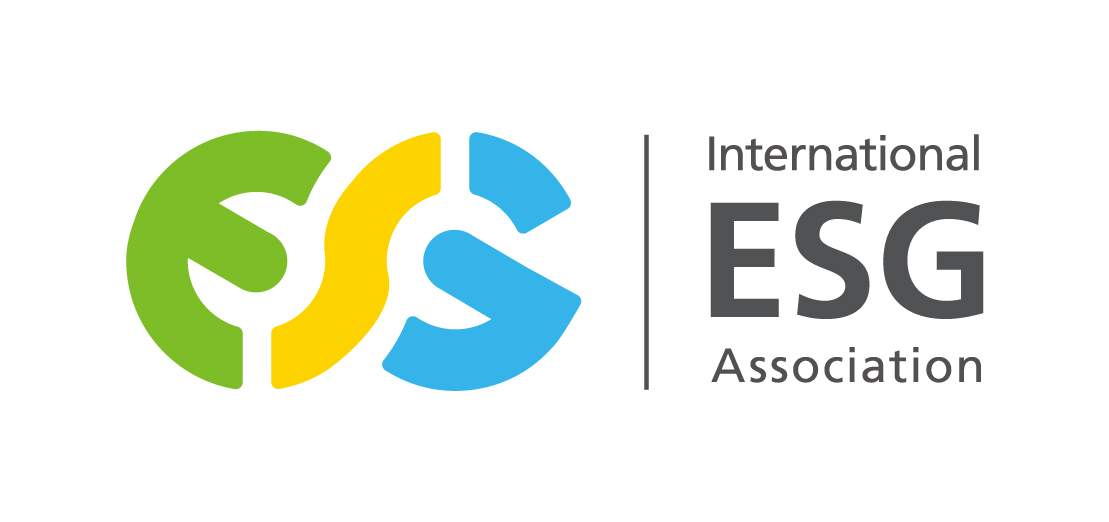 [회장단 소식] 고려대 옥용식 교수 배터리 광물 관련 최고 권위 유럽 학회 ISTEB 차기 회장 선출 (베리타스알파, 2023년 04월 10일)
[회장단 소식] 고려대 옥용식 교수 배터리 광물 관련 최고 권위 유럽 학회 ISTEB 차기 회장 선출 (베리타스알파, 2023년 04월 10일)고려대는 환경생태공학부 옥용식 교수가 코발트, 니켈, 망간 등 핵심광물을 포함한 미량원소 관련 세계적 권위 학회인 ISTEB(International Society of Trace Element Biogeochemistry)의 학회장으로 선출됐다고 10일 밝혔다. ISTEB는 1999년 오스트리아에 설립된 비영리 학술단체로 1990년 미국을 시작으로 2년 마다 대만(1993), 프랑스(1995), 미국(1997), 오스트리아(1999), 캐나다(2001), 스웨덴(2003), 호주(2005), 중국(2007), 멕시코(2009), 이탈리아(2011), 미국(2013), 일본(2015), 스위스(2017), 중국(2019)에서 국제학술대회를 순환 개최해왔다. ISTEB 학회는 미국환경청(USEPA) 소속 커크 쉐켈(Kirk Sheckel) 박사를 직전 회장으로 미국 스탠포드대 지...
작성일: 23.06.15 -
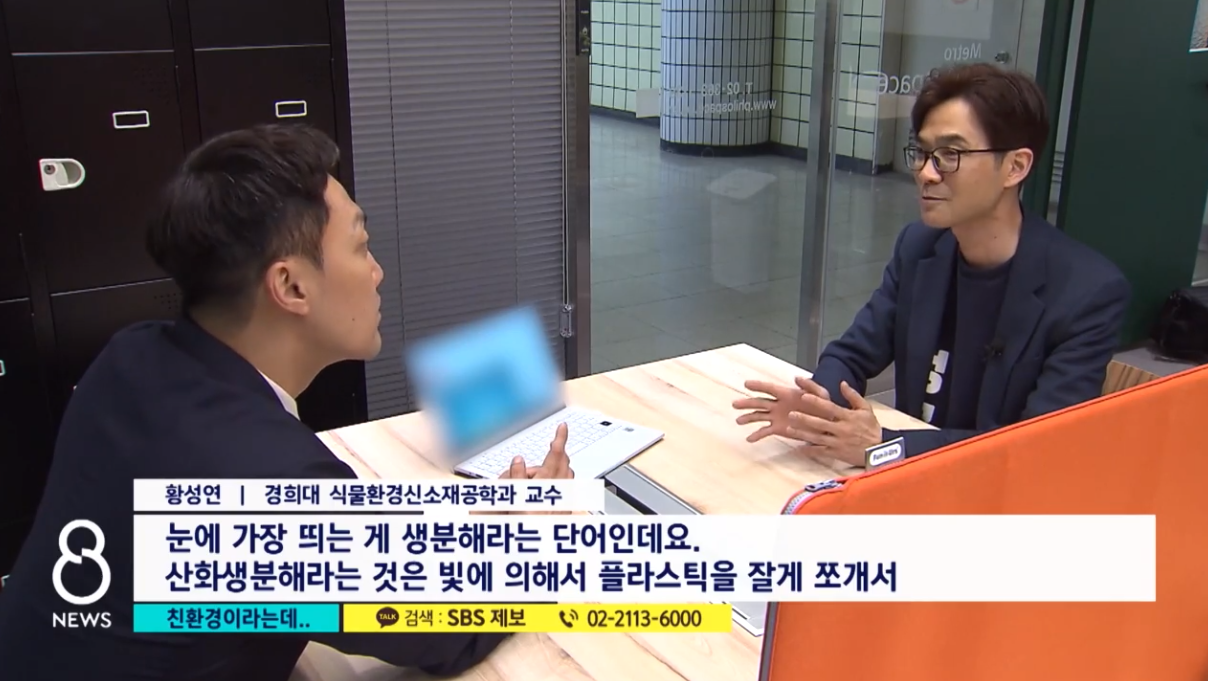 [황성연 이사] \"사용해서 환경 지켜요\"라더니…현실은 \'그린 워싱\'? (SBS뉴스, 2023년 04월 09일)
[황성연 이사] \"사용해서 환경 지켜요\"라더니…현실은 \'그린 워싱\'? (SBS뉴스, 2023년 04월 09일)[황성연/경희대 식물환경신소재공학과 교수 : 눈에 가장 띄는 게 생분해라는 단어인데요. 산화 생분해라는 것은 빛에 의해서 플라스틱을 잘게 쪼개서 눈에 안 보이게끔 만들어주기 때문에 미세 플라스틱을 만드는 데 근본적인 원인이 돼서 유럽에서는 금지 품목으로….]나무 원료로 만드는 레이온 소재를 썼다고 해도 소량에 불과하고, 썩지 않는 소재가 많이 섞여 있을 경우 오히려 환경에 악영향을 끼칠 수 있다는 우려도 나옵니다.
작성일: 23.06.15


